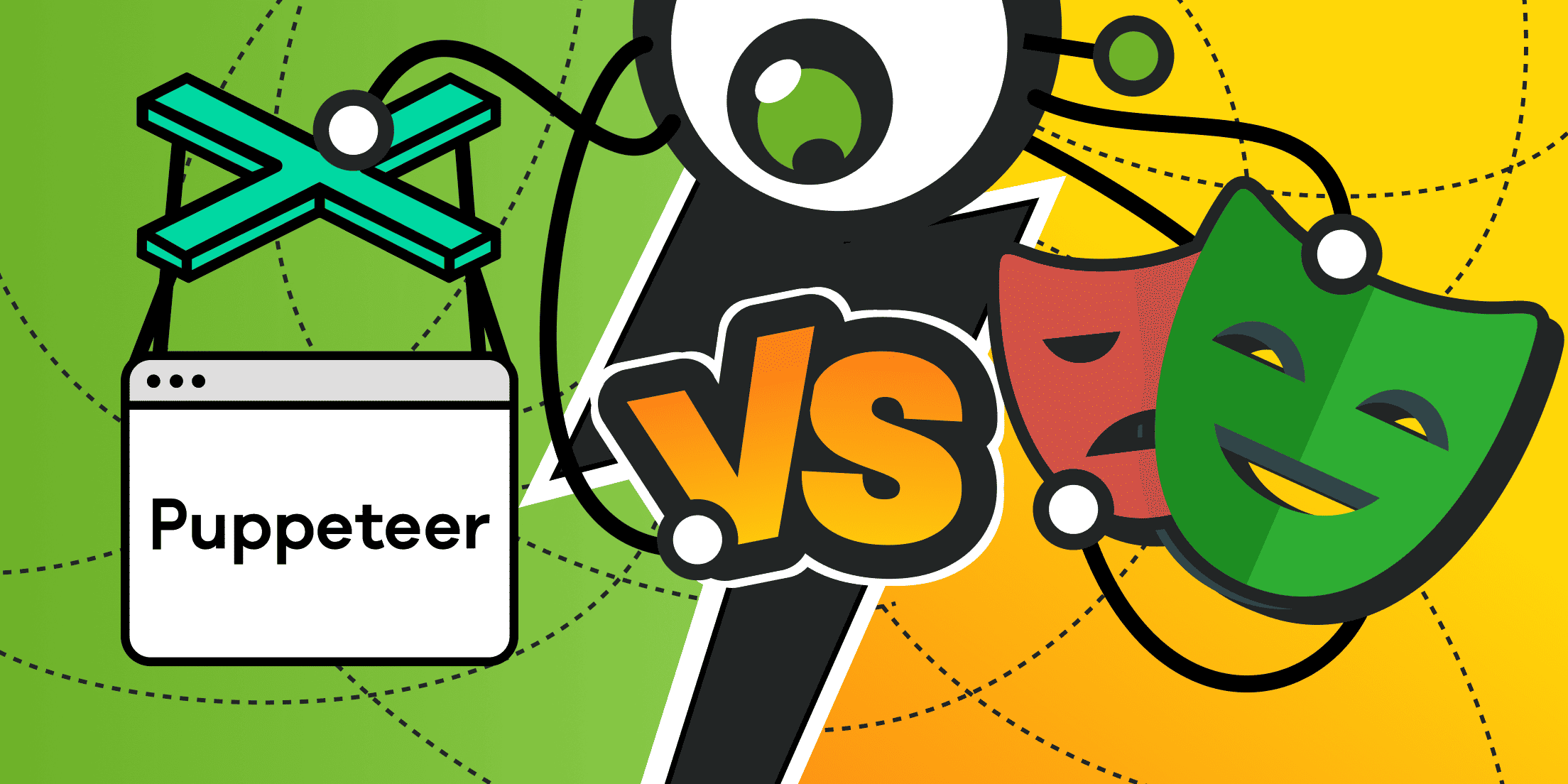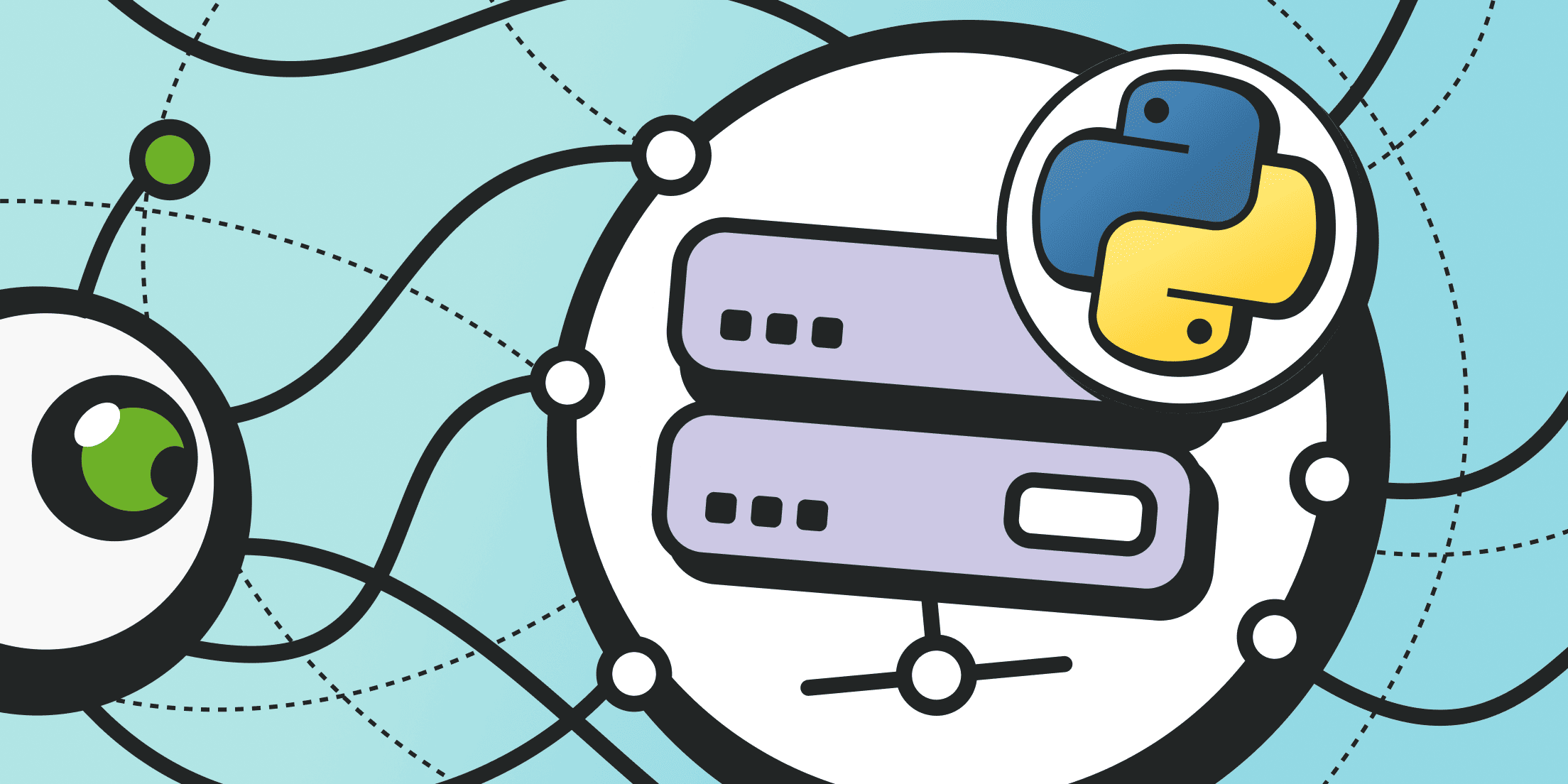Scraping in the modern world is more of a given than just a necessity. Almost every business gathers data on competitors, market trends, supplier products, suppliers themselves, customers, etc. It’s just that not everyone knows how to automate the information collection process. Parsers - software solutions - always make up the foundation of automation. These can be created from scratch or using libraries, frameworks, and integrations with external services and tools.
If you plan to work with websites, then the question of bypassing security systems and properly displaying dynamic content arises. The latest browser versions handle such tasks best. But how can they be integrated with a parser? There are two main options: Playwright and Puppeteer.
Below is a detailed comparison: "Playwright vs. Puppeteer."
Introduction to Playwright and Its Features

Playwright - is an open-source automation library developed by Microsoft for testing browsers and websites. The last feature (website automation) is actively used for task parsing.
The official website (note: the Python version opens by default, but support is also available for other programming languages).
Playwright was first introduced in 2020 and quickly gained popularity among web developers.
The library's main implication is encapsulated in the phrase: “Any browser. Any platform. One API.”
Advantages of Using Playwright Web Scraping
- Support for various programming languages and popular frameworks: Java, Python, .Net, JavaScript, and TypeScript. A ready-made plugin for Visual Studio;
- Compatibility with all popular browser engines: Chromium (Google Chrome, Edge, etc.), WebKit (Safari), and Firefox. Browsers can be launched with a visible interface or run headless. Quick installation of headless browser builds is supported (from its own repository), all pre-configured with management drivers.
- Maximum cross-platform compatibility: Windows, Linux, MacOS, with emulation of mobile versions of Chrome and Safari.
- There is out-of-the-box support for asynchronous calls—no additional scripts or "hacks," everything is at the API level. CLI mode is also available.
- Playwright can operate remotely, for example, on an external server.
- Independent contexts (instances) based on a single browser. Data will be reliably isolated from each other. Additionally, you can log in once, and authentication will be preserved at the context level.
- Support for intercepting network requests and responses (interceptors).
- No need to explicitly specify wait conditions for elements to appear. In Playwright, this is implemented automatically.
- Simple and convenient command syntax unified across all browsers and platforms.
- A large volume of educational materials, including videos and manuals for specific situations as well as code examples.
- A wide range of tools for testing and tracing. You can take screenshots and record videos.
- Extensive capabilities for emulating user behavior.
- Backed by a large vendor - Microsoft.
- Demonstrates good performance and reliability in real-world applications.
- Supports file uploads, form filling, etc.
Use Cases Where Playwright Scraping Works Best
Web scraping with Playwright is a better solution for the following tasks:
- Parsing simple HTML sites.
- Working with dynamic content rendered directly in the browser (JavaScript, AJAX).
- Managing multiple accounts (similar to anti-detect browsers).
- Testing and debugging web applications, including performance tests, as well as handling both mobile and desktop versions.
- Creating page screenshots.
- Integrating with scripts and web services that require data extraction from external sites.
- Building complex testing architectures in large corporate projects.
To sum it up, it’s a powerful framework capable of automating numerous tasks related to parsing and testing.
Introduction to Puppeteer and Its Capabilities

Puppeteer - is a JavaScript library developed by the Chrome Browser Automation team (part of the official Google Chrome developers team). It provides a high-level API interface for the Chrome DevTools Protocol and the WebDriver BiDi driver. This middleware is primarily needed to unify the syntax for writing scripts to test websites and web applications.
As you might guess, the Chrome DevTools protocol is designed to work only with Google Chrome or Chromium browsers.
Things are a bit more complicated with the BiDi WebDriver. Recently, it has added support for Firefox, so Puppeteer can be integrated not only with Chrome (as originally intended) but also with Firefox.
Go ahead to browse the Puppeteer’s official website, along with mentions of the tool on the Chrome DevTools developer portal.
Puppeteer development started in 2017, a year after the launch of headless Chrome.
A simplified version of the library, puppeteer-core, can integrate with any Chromium-based browser installed on the system, such as Edge.
Advantages of Using Puppeteer for Web Scraping
- Compatibility with Chromium and Firefox-based browsers.
- Cross-platform support (in fact, the library only requires support for the programming language, so it can operate on any OS with a compatible browser).
- This is a sample of what a standard Chrome automation using Node.js may look like and should look like. Consequently, support for JavaScript and TypeScript can be enabled as well.
- No need for a web driver: Puppeteer interacts directly with Chrome through the Chrome DevTools Protocol (this simplifies setup and removes the need to download a separate headless browser).
- Simple and clear syntax.
- Request interception capabilities (interceptors).
- Automatic waiting for element visibility along with a set of specialized methods.
- Parallel execution of scripts with context isolation (browser instances).
- A new browser instance is launched in the headless mode by default, using minimal computational resources.
- Quick creation of web page screenshots and PDF versions.
- Basic functionality for testing and tracing.
- Supported and managed by a major vendor – Google.
Use Cases Where Puppeteer Scraping Is the Preferred Choice
Puppeteer is best suited for simple tasks connected with the Chrome browser. You won’t be able to build complex, large-scale corporate testing systems with the library, yet Puppeteer web scraping is frequently a far better solution. Listed below are some situations where Puppeteer can be effectively used:
- Scraping simple and dynamic websites.
- Testing and debugging web applications, including load testing.
- Creating screenshots and PDF versions of pages.
- Visualizing web applications.
- Managing multiple accounts and emulating digital fingerprints (with the help of plugins).
With some effort, Puppeteer can be set up as a remote server to perform tasks and deliver results through an API.
Playwright vs Puppeteer: Feature Comparison

At a high level, both libraries serve similar purposes: parsing and testing. Both offer asynchronous support, cross-platform compatibility, etc. However, specific nuances differentiate these tools.
Let’s start with key technical differences:
- Puppeteer works with a single programming language only - JavaScript. Playwright supports a broader range of languages.
- Puppeteer is primarily developed for testing in Chrome and uses the native Chrome DevTools Protocol (CDP). While support for Firefox has been added recently, it offers fewer functions. Playwright supports various browser versions, maintaining a unified API across them.
- Puppeteer makes it possible to create only screenshots or generate PDFs, whereas Playwright also supports video recording.
We will review the remaining differences in specific categories.
Performance
While Puppeteer works directly with the Chrome headless protocol, it surely excels at performance. Here are examples of real library testing on the same rendering task.
Playwright works a bit slower, but this is not a critical problem.
According to multiple developer feedbacks, Playwright proves to be more effective in certain tasks when it is possible to send the entire batch of requests or use end-to-end (E2E) encryption.
Flexibility and Ease of Use
Both Playwright and Puppeteer offer a simple syntax and a sufficient set of call-making methods. However, Puppeteer closely mirrors Chrome’s API (Chrome DevTools). Each new version of the library is tailored to the latest browser version and is closely tied to it.
On the other hand, Playwright is a versatile tool that works with multiple browsers. Regardless of the programming language used, its API syntax remains consistent. This is what makes Playwright more flexible by default - the library can be used in a wide range of scenarios.
The advantages of Playwright don’t end there. Since the tool is supported by a large community, it’s easy to find ready-made scripts for various use cases: scraping, testing, deployment on a remote server, etc. This significantly reduces the amount of custom code required - you don’t have to reinvent the wheel; you can simply use something pre-existing.
While niche solutions for Puppeteer are also available, there are notably fewer options. As a result, the amount of custom code and development complexity significantly increases, impacting both flexibility and ease of use.
For example, handling proxies, multi-account setups, etc., is only possible in Puppeteer with special plugins from third-party developers. Playwright, however, offers most of these solutions in related repositories from the same developers or directly out-of-the-box.
Residential Proxies
Perfect proxies for valuable data from around the world.
Maintenance and Updates
Both tools are supported by major vendors and have open-source code. They are regularly updated, with bugs fixed and new features added consistently.
However, there are minor nuances:
- Since Playwright’s ecosystem is more extensive (covering multiple programming languages and a larger number of built-in extensions/modules), the number of bugs and issues is inevitably higher. This makes sense, as the more code has to be maintained, the harder it is to keep track of everything.
- In contrast, Puppeteer is currently lighter, with a smaller codebase. It is focused on a single programming language. This contributes to a reduced number of bugs and issues. The library is fast and precise, like a Swiss watch. The trend toward expansion has only recently started, triggered by the growth of interest from third-party developers.
In terms of maintenance, Playwright and Puppeteer can be considered to have a relative parity.
However, there’s a slight edge in the support aspect - see the section on the learning curve for more details.
Scalability
Playwright supports scalability features out of the box. It has everything needed for complex testing or scraping tasks, including manuals for deployment on remote servers.
Puppeteer can also be scaled, but this requires additional effort - at the very least, you’ll need to find ready-made implementations for your tasks in third-party repositories. The main Puppeteer team focuses on the core library itself, leaving the specifics of how you use it up to your creativity and expertise. Some of the best niche implementations can be found in a dedicated section on the official Puppeteer website - here.
Worldwide Coverage
Access our proxy network with more than 200 locations and over 10 million IP addresses.
Learning Curve
Google traditionally doesn’t prioritize direct communication with its users. Puppeteer’s documentation is sparse and not very beginner-friendly. It’s organized in a wiki format with multiple internal links to technical terms, making it challenging to read and understand as a whole.
Alongside, learning to use Puppeteer can be simpler and quicker because the library uses the Chrome DevTools protocol (without web drivers or similar components) and has a very straightforward syntax. As a result, beginners find it easier to start with, and they can dive into details gradually as they learn.
Microsoft, on the other hand, offers a free training course, videos, manuals, and detailed documentation for Playwright. This comprehensive support makes it easier for users to manage scripts independently on Playwright. The syntax is not overly complex, and headless browsers are installed automatically.
However, because the Playwright has more capabilities, learning to use them inevitably becomes more complex. Yet, with a solid understanding, developers can create highly sophisticated and scalable solutions.
Summary: Puppeteer vs Playwright
In Playwright, parsing and website testing scripts can be more complex and extensive. This is due to the comprehensive ecosystem and the large number of built-in features in the library.
Parsing is easier and faster to set up in Puppeteer, but certain programming languages and scalability limitations exist. However, executing requests in a headless browser takes less time and consumes fewer computational resources. More effort is required to create complex scripts since there aren't many ready-made solutions based on Puppeteer yet.
These are the key differences between the libraries.
Best Practices for Maximizing the Efficacy of Web Scraping with Any Tool
If you need to write a quality parser that will be able to prevent blocks, consider the following issues:
- Don’t Forget About Technical Headers. Anti-fraud systems often detect and block headless browsers. To avoid this, manage the user-agent and other parameters in HTTP headers. Tools like playwright-stealth or puppeteer-extra-plugin-stealth hide specific flags, such as headless: true, navigator.webdriver: true, etc. They also allow for fine-tuning codec settings, window size, language, currency, etc.
- Control Request Frequency and Timing. Avoid sending requests too frequently, as this can reveal that a script is running (people don’t switch between pages that quickly). Consistent intervals can also indicate parsing attempts. Again, people just cannot open the pages at the same intervals. Add delays with random elements to mimic natural behavior.
- Use an Asynchronous Approach. While Puppeteer supports asynchronous operations by default, you must explicitly specify asynchronous requests in Playwright. Remember to implement this in your scripts.
- Rely on Specific Page Elements. Many modern websites and PWA applications use dynamic code, and web page structure may load gradually. The best approach is to wait for a specific element to confirm loading is complete before proceeding to parsing. Both Puppeteer and Playwright offer sufficient functionality for this.
- Follow Site Rules and Robots.txt Directives. Avoid bypassing pages that are explicitly restricted in robots.txt, as this can result in bans. Large websites often specify request limits and fair usage policies in detail, up to the request frequency a client can make during a specified time interval. Adhere to these recommendations to avoid penalties.
- Pay Attention to Digital Fingerprints. This is especially true when using multiple accounts on the same site or running multiple browser instances in parallel. To set unique fingerprints, customize cookies, screen resolution, graphics card model, time zone, installed plugins, OS version, etc. Look through the full list of parameters in our article about digital fingerprints.
- Use Proxies and Rotate IPs. Protective mechanisms often identify users by IP address, which can reveal the user’s approximate location. Based on this info, different versions of web pages and sites may be displayed. IPs may be added to blacklists and spam databases. Use quality proxies, such as mobile or residential, and rotate them periodically to avoid problems with anti-fraud systems. For high volumes of requests, distribute the load across multiple proxies. Requests from the same flow should be occasionally sent from a new IP (to avoid the current IP block). To do this, it's important to track proxy rotation. The simplest and the most reliable way to do this is to buy rotating proxies. They are connected only once, while other settings like city targeting, session duration, and rotation frequency are adjusted in the provider's dashboard.
Here is a full guide on how to parse without getting blocked.
Conclusion and Recommendations

Both libraries are good in their own way. Playwright supports multiple programming languages, offers quick installation of headless browsers from a dedicated repository, has many built-in features, and is easily extendable with both official and unofficial plugins. With Playwright, you can build robust enterprise solutions.
Puppeteer is a lightweight and fast library that interacts directly with an already installed Google Chrome browser via the Chrome DevTools Protocol (CDP). It also allows for extensions and is suitable for serious tasks. However, with Puppeteer, the codebase for larger projects might be more extensive, as there are currently fewer niche solutions based on It. The documentation is fairly minimal (geared primarily toward professionals).
Regardless of the library you choose, it’s essential to consider the protection mechanisms of target websites to avoid being blocked.
A key aspect of large-scale scraping is the required use of proxies with rotation. You can purchase high-quality rotating proxies (datacenter, mobile, and residential) from us. Froxy offers 10+ million IPs worldwide, specifically targeting cities and/or carriers. Rotation can be done by time interval or with each new request.




